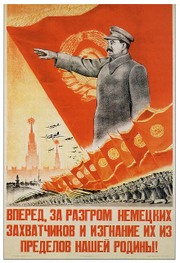The fight against AT&T, both its horizontal and vertical break-up to guarantee market competition, must be an integral part of any progressive open source agenda.
Right now AT&T is an unregulated monopoly, which takes enormous subsidies from the taxpayer. It has now begun, with the cooperation of the FCC, to increase those subsidies.
That’s what companies do. Poor man want to be rich, rich man want to be king, and a king ain’t satisfied until he rules everything, as the song goes. AT&T is now King of the U.S. Internet, and it won’t be satisfied until it can do there what it does in cellular, namely sell bits through an eyedropper, control what the bits do, and take monopoly profit from each side of every transaction. This is no different from what an African PTT used to do back in the 1980s, and that’s where our economy will go if we allow this.
This is a perfect set of issues in which open source politics can work. It involves the identification of Astroturf groups, bought-off research and other fronts. It involves focusing the government on simple goals — nothing less than a break-up will do — and it involves keeping politicians’ feet to the fire on this.
It’s ironic that humor seems to be the best weapon against what we face (as above), but that’s the way it is when democracy has been destroyed and utterly corrupted. Humor was the only weapon against Stalin, and when you have powerful corporations controlling state action calling the result democracy is just brain-dead.
A lot of issues are actually related:
- The Bell monopoly
- Media concentration
- Copyright absolutism
They all point toward central control of what you think and what you
can do about those thoughts, which in the context of an Internet
economy is a formula for poverty. People are already being jailed over these issues, and progressives must grasp the connections if they’re to successfully challenge the status quo.
It is just as brain-dead to centralize information today as it was for Stalin to centralize industrial production in the 20th century, or
for Spain to centralize capital flows in the 16th century. The danger
is not that we’re about to be taken over by Fascists. The danger is
that we’re about to be overtaken by nominal communists, who keep
loosening the reins on their people while we keep tightening them on
ours.
Success in an Internet society, an Internet economy, is based
entirely on the quality of our minds and our ability to pass that
knowledge around. We are the factories, and our Internet links are the
roads, and our servers are the warehouses, in the information economy.
Progress means moving forward, in harmony with what we know and can
learn. It’s not dogmatic. It’s a container in which there is maximum
flexibility, and a maximum of compromise. That’s the way our
Constitution works. That is its genius.
And true deregulation of the Internet economy must be at the heart of our program.










